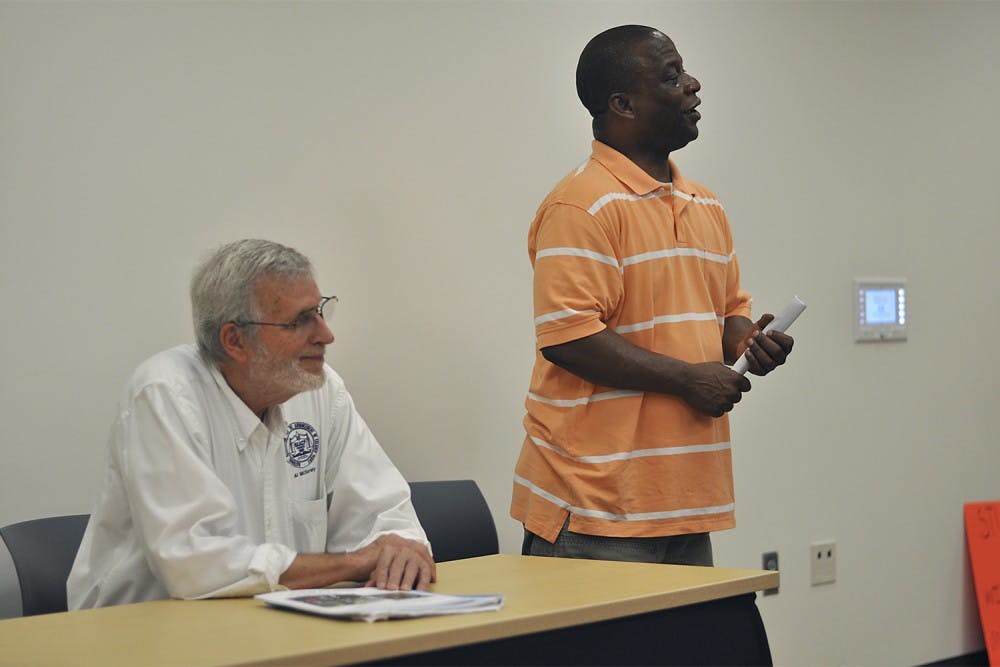After the film, “Women Behind the Lines,” Al McSurely, a lawyer who serves as the legal redress chair of the Chapel Hill-Carborro National Association for the Advancement of Colored People, and Clyde Clark, a Chapel Hill sanitation worker who was fired in 2010, spoke about the importance of getting students involved in workers’ rights.
“We can form this diverse rainbow of a coalition,” Clark said.
Kat Caskey, a member of SAW, said the group wanted people to know the history of labor struggles at UNC. The group asked McSurely to speak to demonstrate how workers’ rights problems are still relevant in the Chapel Hill community.
“When students and workers work together, they get a lot more done,” Caskey said. “You can put pressure upon both sides on the administration, and it’s a lot more effective.”
On Feb. 23, 1969, Lenoir workers prepared meals for students as usual, but sat at cafeteria tables and went on strike instead of serving. Supported by the Black Student Movement, workers demanded raises, paid overtime and the end of split shifts. The UNC students of 1969 and workers joined forces to raise awareness for the overworked and underpaid employees. University officials ordered state troopers to campus.
After a monthlong strike and the creation of a temporary dining hall in Manning Hall for student supporters, Gov. Robert Scott finally agreed to raise wages by 20 cents per hour.



